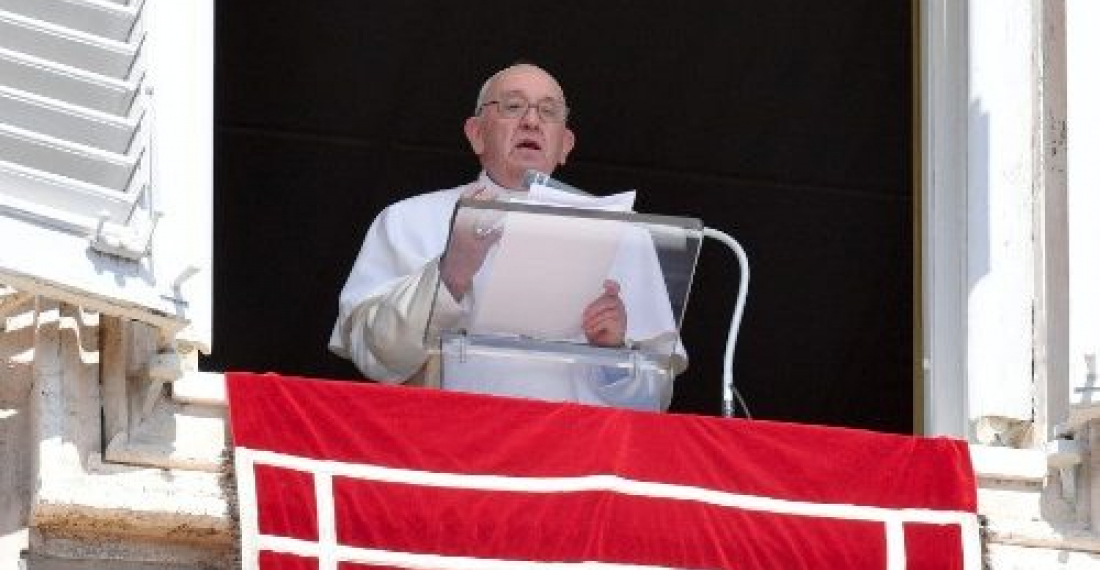Pope Francis on Sunday (2 October) expressed concern over the nuclear threat and military escalation in the war in Ukraine, dedicating his entire Angelus address to the situation and issuing a powerful appeal for an immediate ceasefire. He deplored the annexation of Ukrainian territory by Russia, called for respect for the territorial integrity of every country and the rights of minorities. He expressed his saddness for the thousands of victims, especially children.
How much blood must still flow for us to realize that war is never a solution, only destruction? In the name of God and in the name of the sense of humanity that dwells in every heart, I renew my call for an immediate ceasefire. Let there be a halt to arms, and let us seek the conditions for negotiations that will lead to solutions that are not imposed by force, but consensual, just and stable. And they will be so if they are based on respect for the sacrosanct value of human life, as well as the sovereignty and territorial integrity of each country, and the rights of minorities and legitimate concerns, the Pope said.
Pope Francis appealed to Russian President Vladimir Putin, imploring him to “stop this spiral of violence and death” in Ukraine and denounced the “absurd” risk to humanity of catastrophic nuclear war as tensions escalate.
Francis uttered his strongest plea yet on the seventh-month war as he addressed the public in St. Peter’s Square. It was the first time in public that he cited Putin’s leadership.
The pontiff also called on Ukrainian President Volodymyr Zelenskyy to “be open” to serious peace proposals. He exhorted the international community to “use all diplomatic instruments” to end this “huge tragedy” and “horror” of war.
“This terrible, inconceivable wound of humanity, instead of shrinking, continues to bleed even more, threatening to spread,″ Francis said.
“That humanity again finds itself before the threat of atomic war is absurd,″ the pontiff said. “What more has to happen, how much more blood has to flow” before the war ends? asked Francis.
The pope implored “the Russian Federation president, also for the love of his people, to stop this spiral of violence and death.”
He then urged Zelenskyy to “be open to serious proposals to peace,″ and called upon ”all protagonists of international life and political leaders with insistence to do all they can to put an end to the war,″ avoiding “dangerous escalation.”
Francis called for the “recourse to all diplomatic instruments to end this huge tragedy.” In his address he called war “a horror” and “madness.”
He expressed anguish that “the world is learning about the geography of Ukraine” through the names of its cities and towns, now associated with the death of civilians, including Bucha and Mariupol.
Throughout the war, Francis has denounced the recourse to arms and urged dialogue. But recently, he stressed Ukraine’s right to defend itself from aggression.
source: commonspace.eu with Vatican Radio
photo: Pope Francis speaking at St Peter's Square






